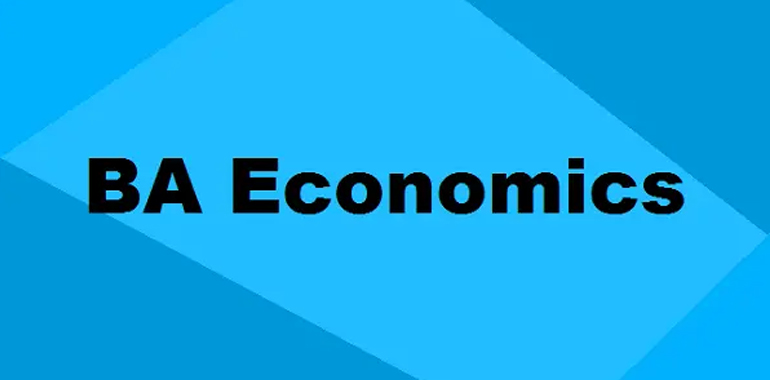Courses

The Department of Economics at Auxilium Arts and Science College for Women is dedicated to equipping students with a strong foundation in economic theory, policy, and application. With a focus on analytical thinking and real-world problem-solving, the department aims to produce graduates who can critically evaluate economic issues and contribute meaningfully to societal development. The department fosters a dynamic learning environment through interactive teaching, research opportunities, and co-curricular activities.
The Bachelor of Arts in Economics is an undergraduate program designed to provide a comprehensive understanding of economic principles, theories, and their practical applications. The program covers both microeconomics and macroeconomics, along with specialized areas such as public finance, international trade, and developmental economics.
The program aims to:
- Build a strong theoretical foundation in economics.
- Develop analytical and quantitative skills for economic research and policy-making.
- Foster critical thinking and problem-solving abilities in addressing economic challenges.
- Explore the interconnections between economics and other disciplines, such as politics, sociology, and environmental studies.
Curriculum Overview
The B.A. Economics program typically spans three years and includes the following key components:
Core Subjects
- Microeconomics and Macroeconomics
- Indian Economy
- Public Finance and Fiscal Policy
- International Trade and Finance
- Development Economics
- Environmental Economics
Elective Subjects
- Agricultural Economics
- Industrial Economics
- Financial Markets and Institutions
- Econometrics and Data Analysis
Skill-Based Courses
- Quantitative Techniques for Economics
- Economic Survey and Report Writing
- Policy Analysis and Economic Forecasting
Project Work
- Students undertake a research-based project in their final year, focusing on real-world economic issues, policy analysis, or data-driven research.
Graduates of B.A. Economics have diverse career opportunities across various sectors, including:
Government and Policy Making
- Economic Analyst or Policy Advisor in government departments and think tanks.
- Economist in public institutions such as Reserve Bank of India (RBI), Planning Commission, or ministries.
Banking and Finance
- Roles in commercial banks, investment banks, or financial institutions as Financial Analyst, Risk Manager, or Loan Officer.
Corporate Sector
- Business Analyst or Consultant in industries such as consulting, market research, and corporate strategy.
Education and Academia
- Teaching positions in schools, colleges, and universities.
- Researcher or Academic Writer specializing in economic studies.
International Organizations
- Opportunities in organizations like the United Nations, World Bank, International Monetary Fund, or NGOs working on developmental and economic projects.
Entrepreneurship and Business Development
- Startup founder or entrepreneur, applying economic knowledge to innovate and solve market challenges.
Data Analytics and Research
- Data Analyst or Research Associate in economic research firms, multinational corporations, or academic institutions.
Competitive Exams
- Strong foundation for exams such as UPSC, SSC, and TNPSC, where economic knowledge is highly valued.
The B.A. Economics program prepares students to tackle contemporary economic challenges and contribute to sustainable development and policymaking. It equips graduates with the skills and knowledge necessary for impactful careers in a variety of fields, fostering both personal growth and societal advancement.
